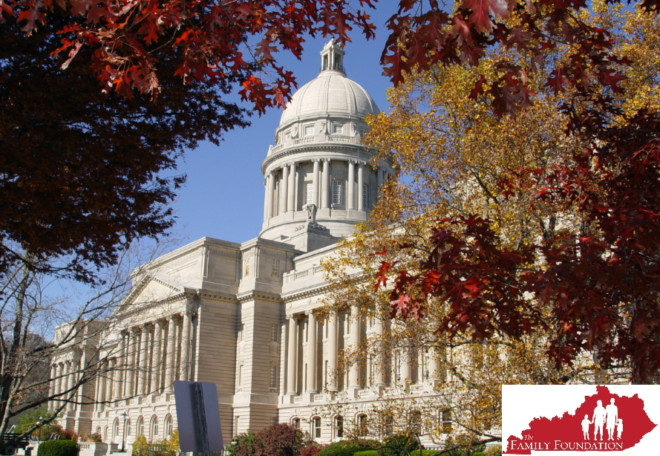Through the leadership and advocacy of the Kentucky Family Foundation, last year the Kentucky legislature made two strong and novel declarations. First, Kentucky was the only state in the country to signal to Congress the need for federal law change in order to ensure that known facilitators of sex trafficking on the Internet would be punished. In an 83-0 unanimous House vote in favor, Kentucky sent a strong message backing that eventual federal amendment of the Communications Decency Act that removed the immunity from online commercial sex traffickers from civil and criminal prosecutions leading to the shutting down of known trafficking site backpage.com and the founder charged with a 93 count indictment.
Kentucky also declared pornography a public health crisis calling on the need for prevention, research, and policy change at the community and societal level. Kentucky, at the time, was the tenth state to make a similar declaration, but the first to recognize the need for federal obscenity laws to be enforced, recognizing that, “pornographers in many parts of the country responded by self-regulating when federal obscenity laws were enforced.”
This simple addition to their state-level resolution ignited activists all over the country to call their legislators to also urge the U.S. Justice Department to enforce obscenity laws. According to Ricky Darr, Executive Director of the National Decency Coalition, “The leadership team at the Kentucky Family Foundation took these two resolutions and not only seamless pushed them through their legislature but enhanced them to another level. We are currently partnered with activists in ten states to also have a resolution passed in their state declaring the health crisis and for the U.S. Justice Department to ‘ to vigorously enforce federal and state obscenity laws against commercialized obscenity.'”
Both resolutions passed in Kentucky were developed by the National Center on Sexual Exploitation (NCOSE), an organization based out of D.C. that advocate for a world free from all forms of sexual exploitation. Enforcing obscenity laws (or hard-core pornography) has been a message that NCOSE has been proclaiming for years. President of NCOSE, Pat Trueman, was the former Chief of the Child Exploitation and Obscenity Section of the U.S. Department of Justice who, in the early 90’s, led prosecutions against pornographers all over the U.S. Trueman explains that online pornographers are violating federal law and history shows that federal prosecutions cause self-regulation within the porn industry- as Kentucky’s resolution states. Is pornography illegal? According to Federal Laws 18 U.S.C. 1462 & 1468 the distribution of obscenity (hardcore pornography) by mail, Internet, cable television, and more is illegal and punishable up to five years in prison.
Similarly, the National Decency Coalition(NDC) late last year launched their “Safer Internet for Children” initiative educating legislatures on the need for enforcement of obscenity laws, the ability for Internet Service Providers(ISP’s) to play a significant role in protecting children, and calling on ISP’s to voluntarily filter pornography by default.

